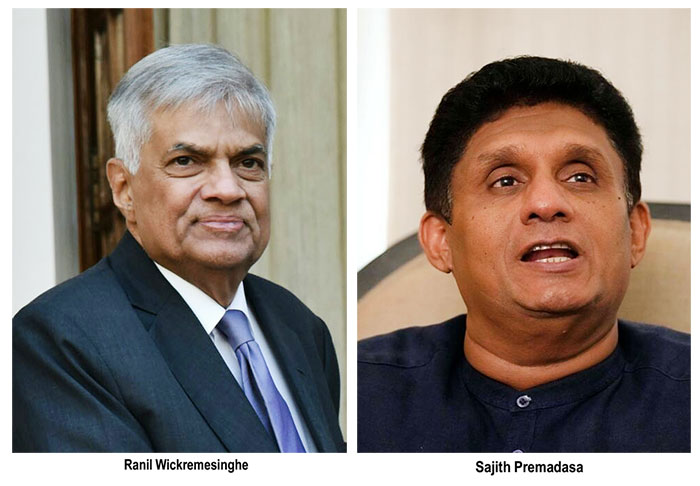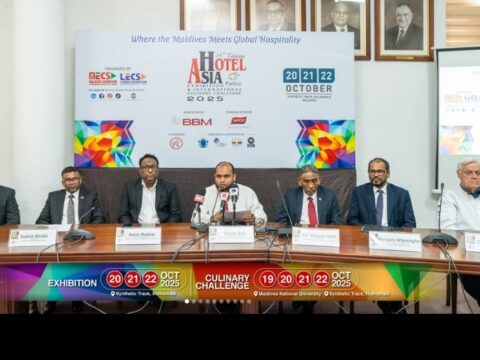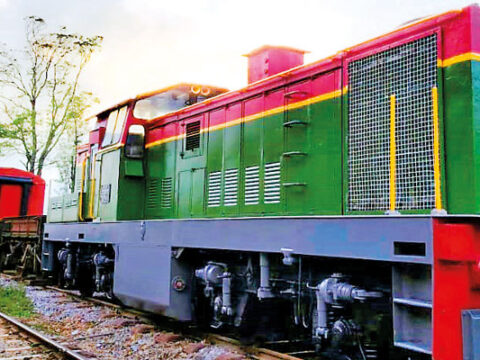© THE ISLAND
By Anura Gunasekera
July 20, 2022, will go down in Sri Lanka’s history as a day of a political miracle, possible only in Sri Lanka.
Ranil Wickremesinghe, the man who lost in his own seat in the 2020 General Election, securing less than 3% of the ballot, was levered into Parliament, in June 2021, through the national list, to the single seat available in the house for his party, the UNP. On 12 May, 2022, through a questionably opaque political gambit, he is appointed Prime Minister by then President, Gotabaya Rajapaksa. On 9th July, his personal residence is reduced to rubble by an enraged mob, demanding his resignation. On 15th July, consequent to GR’s abdication, the man who received a paltry 30,000 votes in his own electoral district, replaces the man who was driven out of the country, despite being elected with an overwhelming national mandate of 6.9 million. On 20th July, beating all-known odds, and in defiance of all predictions, he is elected President by a huge majority in Parliament, in a house in which he was the sole representative of the once mighty United National Party.
Despite being elected Prime Minister, on six occasions, he was never able to complete a term. However, since the beginning of his career, in spite of being reviled, ridiculed and periodically defeated and sidelined, he has, somehow, survived the perilous journey through the political minefield of Sri Lanka. As the leader of the UNP, he presided over the rapid disintegration of his own party, towards which he made a significant contribution. But, today, he is the elected leader of the country, ironically, enthusiastically sponsored by the very members of the Sri Lanka Podujana Peramuna (SLPP) which, in August 2020, consigned him to political oblivion. For decades a frequent starter but never a finisher, he has finally clambered to the top; discarded by the nation but recalled by a group, themselves rejected by the same nation.
It is equally ironic that the Aragalaya, committed to overturning a system which includes leaders of RW’s ilk, finally, unwittingly, created the very conditions which enabled RW’s resurrection and elevation to the highest office, after all other legitimate means had failed him. In a sense, although the Aragalists would despise the symbolism, RW has become the illegitimate offspring of their struggle. It also appears that the constitution of Sri Lanka, purported to enshrine the sovereignty of the people, facilitates and validates this travesty of what one might call natural justice and both the will and wish of the people.
Why was a relative nonentity, like Dulles, until very recently a Rajapaksa faithful, chosen to oppose RW? The most obvious answer would be that Sajith Premadasa, faced with a second career challenge within weeks, again showed no stomach for the fight. In this situation the most obvious candidate to oppose RW would have been the Leader of the Opposition. Under the circumstances, one would have naturally expected Sajith to heed the call of the nation, and on its behalf carry that fight into Parliament, instead of placing a stooge on the firing line. Hirunika Premachandra, a woman with no place in Parliament, has done more on behalf of the people in the street itself, in the last couple of months, than what Sajith has done in Parliament since August 2020.
An analysis of the voting pattern, on behalf of Dulles, clearly indicates that I mentioned this in a previous writing (The Island – 17/07/22) and shall say it again; Sajith needs to replace rhetoric with action; he pales in comparison with previous leaders of the Opposition, and does not merit mention in the same breath with his late father, Ranasinghe Premadasa, who was unflinchingly resolute in adversity.
Sajith has not been able to muster total SJB support on behalf of his nominee, and nor has he been able to ensure the full support of the minor parties. Under these circumstances, obviously, the leadership of both the SJB and the combined opposition needs review. I mentioned this in a previous writing (The Island – 17/07/22) and shall say it again; Sajith needs to replace rhetoric with action; he pales in comparison with previous leaders of the Opposition, and does not merit mention in the same breath with his late father, Ranasinghe Premadasa, who was unflinchingly resolute in adversity.
For the last several months ordinary people, such as students, daily-wage earners, housewives, three-wheeler drivers have been doing the job of the Opposition, in cities and towns all over the island. Since it is clear that Sajith is unable to complement that dynamism with political leadership, it is fitting that he hands over the reins to another. Had he contested RW and lost, he would have still have been able to regain the credibility he lost by his reluctance to accept the premiership, when it was on offer earlier. It cannot be lost on him either, that had he seized that opportunity, he may have been the President elect today. The perfect landing strip that he yearns for does not exist in real-time politics. The RW-Pohottuwa vanguard needs to be countered with a robust, combined Opposition of all the other parties, led by a politician with durable moral fibre; Sajith, with his clear lack of resolve, has proved that he is no longer a choice.
The parliamentary majority that the Dulles faction claimed, clearly on assurances given prior to the actual election, evaporated overnight and, predictably, the house of ill-fame at Diyawanna produced a skewed result. The procurers, courtesans and their patrons – all appointed by the people – conspired to deliver an outcome, which has once again inflamed public sentiment, temporarily soothed by Gota’s eviction. Vote-buying on the promise of a range of rewards, as alleged widely – not an uncommon reality in Sri Lankan politics – may have resulted in a Presidency auction instead of an election.
RW’s first major command decision, unleashing the dogs of war on the Aragalists at the Presidential Secretariat, pre-empting a possible peaceful vacation of the premises, has drawn justifiable condemnation, both locally and internationally. The Aragalaya itself appears to have changed in both complexion and composition. Ordinary citizens of all social and economic classes have withdrawn and the Aragalaya is now represented by more militant, professional agitators, seemingly drawn largely from the Frontline Socialist Party and the Inter-University Federation, with some assistance from habitual malcontents who occupy the fringe of all strife, irrespective of political belief.
A manifesto, allegedly representing the Aragalaya vision for future governance, is being circulated widely in social media. To me, it is an unhealthy and impractical blend of reason and un-reason, laced with a few “Pol-Potish” elements, which would create a clear sense of unease in any citizen with a democratic and liberal mindset. If the Aragalaya is to challenge the RW regime, as it should, it must also evolve a practical post-Aragalaya agenda, with which the majority can engage without apprehension.
The current political reality is that RW is president, as powerful as the deposed tyrant, Gotabhaya. The Pohottuwa would have endorsed his candidacy, only on certain assurances which would enable its members to continue as before. Despite the eviction of a Rajapaksa president, the ground reality is still a Rajapaksa dispensation with a “neo-liberal leader”, which, from the first day itself, promises to be more repressive than its predecessor. The cancer has not been excised whilst the cabinet appointments of a convict, Prasanna Ranatunga, the discredited Keheliya Rambukwella and Bandula Gunawardena suggest that issues such as personal integrity and credibility did not feature significantly in the selection criteria.
Every time the law-makers assemble, the Diyawanna house becomes a garrison. Massive metal barricades manned by heavily armed troops need to be in place, before our representatives feel safe enough to attend to the business of governance. Therefore, it is clear that the law-makers themselves have accepted their illegitimacy in the eyes of the people. No democratic government can cower permanently behind a military shield, and pretend to represent the people. Eventually, those fortifications will be breached by an enraged nation, despite the possibility of real bullets replacing tear gas and water cannon.
The only possible solution to this impasse is a general election, as soon as that becomes practically possible. It should be held as soon as the current shortages have been eased and stability introduced to the financial system, and no later than six months down the line. RW should make haste to announce a date to a nation, totally disenchanted with the current governance. The people must be allowed to make their choices. Perhaps, if the lessons of recent history have not been forgotten by then, our electors will cast aside racial, religious and caste bigotry, irrational political affiliations, and vote with wisdom, rationality and selectivity.
Our nation needs to understand that the ongoing social and economic implosion, was not entirely the result of the Gotabhaya presidency. His disastrously stupid decisions supplied the ingredients for critical mass, but the fault lines opened with the first independent governance of Sri Lanka, with successive governments cementing the concept of social justice, through the primacy of Sinhala nationalism. Language policy, disenfranchisement of plantation Tamils, the standardization of marks for university admission, the State-endorsed persecution of minorities, the ennobling of Buddhism and the demonization of other faiths, have entrenched in the psyche of a largely Sinhala-Buddhist nation, the notion that the primary concern of the State must be its Sinhala-Buddhist polity.
Unsustainable food subsidies, easy working hours and tolerance of low productivity in government service, political patronage for employment, a bloated and undisciplined public service with assured terminal benefits and the immense corruption and waste within the State machine- reinforced by a lack of accountability – have for long been an unendurable drain on State resources. Similarly, State patronage of enormous, loss-making enterprises (e. g., Sri Lankan Airlines) a ridiculously large standing army ( increased by about 25% since the end of the war in 2009), with a peace-time budget much greater than the allocation for education, a richly entitled legislature at both national and regional level, combine to contribute to unsustainable outgoings; a guaranteed fertilizer subsidy is a disincentive for farmers to increase land productivity. Also a word to unemployed graduates; the State provides you with an education but is not obliged to provide you with sinecure employment of your choice. You need to work at becoming employable and learn to accept what is available.
There is much, much more to the above but the nation as a whole, needs to understand the complexity of the problem Sri lanka is currently faced with, and acknowledge its witting and unwitting contribution to many of its features. Hand-outs from neighbouring nations and a bail-out from the IMF will only provide temporary relief. Changes of government will make but little difference. Salvation and long-term stability will be possible, only when we recognize and remedy the root causes ourselves. If the people take the initiative, as the “Araglaya” has convincingly demonstrated, the politicians will be compelled to follow suit.




